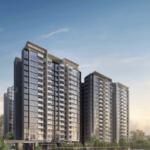Philadelphia’s commercial buildings are as diverse as the city itself. From office buildings and medical centers to apartment complexes and warehouses, properties across the region serve a wide range of people and purposes. For property owners and managers, that variety brings unique challenges, particularly when it comes to managing who can access a building.
Access control systems in Philadelphia offer a practical way to manage entry to buildings and specific areas within them. By replacing traditional lock-and-key setups with digital credentials or coded entry methods, access control provides a more efficient and flexible solution for securing commercial properties.
What is access control?
Access control refers to any system that regulates who is allowed to enter a building or restricted area, and when. This could involve anything from keypads and fobs to mobile-based systems and credential management platforms. The goal is to give authorized people seamless access while keeping unauthorized visitors out.
In a busy city like Philadelphia, where buildings often serve multiple tenants or uses, having an access control system in place helps simplify daily operations, improve accountability, and maintain a secure environment.
How Access Control Supports Property Management in Philadelphia
Managing a commercial property in Philadelphia comes with a unique set of challenges, from balancing tenant needs to maintaining building security. Access control systems help streamline these responsibilities by offering practical tools to manage entry, monitor activity, and improve overall building operations.
Here’s how access control supports effective property management across a variety of settings.
1. Enhances Day-to-Day Operations
Managing access manually can be time-consuming. With access control, permissions can be issued or revoked in real time, reducing administrative workload. This flexibility is especially helpful in commercial properties where staff schedules or tenant lists may change frequently.
2. Supports Privacy and Security
Buildings that host multiple tenants, such as offices, clinics, or apartments, need to maintain separation between shared and private spaces. Access control allows property managers to configure permissions based on areas and roles, ensuring that only authorized people can access certain rooms or suites.
3. Offers Detailed Tracking
Access control systems can log who enters and exits a building, and at what time. This creates a record that can be useful for auditing, incident response, or managing staff attendance. In environments where compliance or safety standards are important, these logs provide an added layer of oversight.
4. Simplifies Access for Visitors and Vendors
Instead of relying on physical keys or full-time front desk staff, buildings can grant temporary access to vendors, contractors, or guests. This makes it easier to manage short-term visitors without disrupting normal operations or compromising security.
Use Cases for Access Control in Philadelphia Properties
Access control systems can be adapted to meet the needs of a wide variety of property types.
Here are a few common use cases that demonstrate how these systems support daily operations and long-term management goals:
Commercial Office Buildings
In office settings, access control helps manage who can enter the building, individual suites, and shared areas like conference rooms or break rooms. Property managers can assign access permissions based on employee roles, allowing for secure separation between companies and departments. When a staff member leaves or a company relocates, access can be quickly revoked without the need to rekey locks.
Residential and Mixed-Use Buildings
Access control simplifies entry management in properties that combine residential units with shared amenities such as gyms, package rooms, and lobbies. Tenants can be given individual access credentials, while guests and delivery personnel can receive temporary permissions. This setup supports both resident convenience and building-wide security.
Healthcare and Medical Offices
For medical facilities and clinics, access control is used to protect sensitive areas such as patient records, medication storage, and exam rooms. Access can be restricted based on staff roles or time of day, ensuring only authorized personnel can enter critical areas. This also helps support compliance with privacy and safety regulations.
Industrial and Warehouse Facilities
In industrial properties, access control helps secure high-value inventory, equipment, and loading zones. Managers can limit access to specific times or assign permissions based on job duties, reducing the risk of unauthorized entry and improving overall site oversight. Entry logs can also help track staff activity for safety and accountability purposes.
Conclusion
Access control is no longer limited to high-security environments. It has become a standard tool for managing access in a variety of commercial settings. In a city like Philadelphia, where buildings often balance multiple users, purposes, and architectural styles, access control helps property managers streamline entry management while maintaining a safe and efficient environment.
Whether you’re overseeing a commercial office, residential property, or mixed-use facility, access control can help meet modern expectations for safety, convenience, and operational flexibility.






